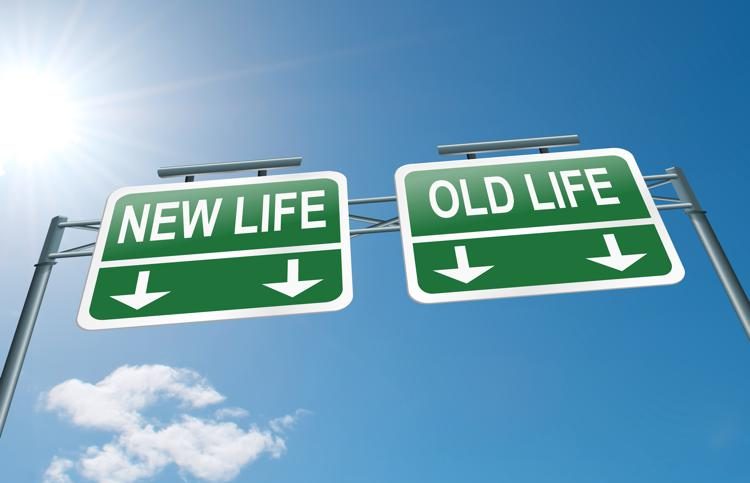Have you ever awakened from sleep abruptly, and been completely disoriented? Your eyes are open, you know you’re awake, but you can’t find your bearings. Your heart pounds, your head feels fuzzy, and you can’t make your brain function in any coherent fashion. You’re fearful you’ve missed something important (like you’re supposed to be at work at this moment) you can’t quite remember where you are, nor can you figure out what time of day it is.
That sense of disorientation can happen even when we’re awake. Recently, as I was cycling around my old neighbourhood after being absent for seven years, I felt completely lost. I knew I was in the right place, on the right street, but I just couldn’t get oriented. Everything had changed. All the old landmarks were gone and instead, the area had new buildings, homes, and parks I didn’t recognize. It was difficult to reconcile the picture in my mind’s eye with what I was seeing in reality. Eventually, I found a landmark that hadn’t changed, got myself oriented from there, and put my old neighborhood back together in its new shape.
I got thinking about how this experience applies to life in general. That same sensation can happen to anyone, any time there’s been a huge change in life circumstances. If someone you love has died, or a relationship has ended, the loss of a job, an unexpected change in plans – all of these things can cause temporary feelings of disorientation; of feeling like now is unreal. The psyche and emotions are stuck in the old situation, but the body and mind are in the present. It can feel a bit crazy-making.
The remedy for this disorientation after a nap is to refer to an unshakeable standard of measure – usually time. Reading that it’s 4:20 p.m. and seeing the sun out helps me to get my panic under control. I haven’t slept all night, I’m not late for work, and I haven’t missed tonight’s hockey game. In my old neighborhood, I found something that I recognized that had not changed, and used that to orient myself to the differences between my mental picture and reality.
In life, when we suffer loss, this process is exactly the same. We are ‘cast adrift,’ and the only solution is to find an unshakeable orientation point, and wait. It is this waiting part that we so often try to short-circuit. Did you know that the general standard for grieving a loss is one month for every year the ————- [insert thing; relationship, job, precious memento] was a part of our lives? We human beings are wretchedly bad at accepting that sorrow is a part of living. We cannot say “Hello,” and embrace a new thing without saying “Goodbye” and letting go of the old.
If you’ve suffered a loss, no matter what the circumstances, be patient with yourself. Take the time to adjust; to re-orient your perspective to the new, while accepting the sorrow of saying goodbye to the old. Even when we choose the change, believing it to be good, we must still say goodbye to what we have now. We peeps are such emotionally rich and psychologically complex creatures – we cannot have joy without sorrow, pleasure without pain, or life without death. Acceptance is the key. We need to practice – a little Zen would be helpful – the acceptance of what is instead of the wishing for what was or what will be. Living in the NOW with whatever emotions are present with me.
One more thought…what sorrow will we as a race – homo sapiens; inhabitants of this gorgeous blue ball floating in space – experience when the unrestrained destruction of our own environment puts us all in jeopardy? We must be the only species on the entire planet that is actively sabotaging the ability of the earth to sustain future generations; what a loss that will be. Boo us.
Be kind to yourself and maybe go do something to nurture the earth this month. Humankind will thank you.











